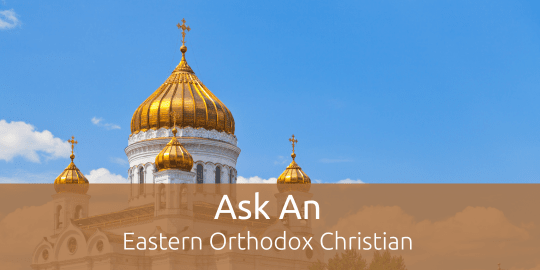Ask an EOC: What can I pray for protection over me and my family?
What do you want to ask an Eastern Orthodox Christian? Fill out the form below or submit your question online.
Commentary by Nicholas Damascus | FāVS News
In the Eastern Orthodox faith, prayer might be thought of as an open line of communication, a request, a petition for understanding, a plea for help, a supplication, an intercession, a confession, an expression of gratitude, thanksgiving, praise and infinitely more. The actual event of prayer is a mystery, which one might say involves the energies of the Holy Spirit of God, who mystically is the conduit that connects man to one another and to our Father in Heaven.
Prayer is then not necessarily merely a part of life that we can conveniently lay aside and call upon when we need it. We discover that prayer is as essential to our existence as breathing is to maintaining our living, physical existence. Prayer is the spiritual lifeline/antenna that enables us to receive God’s knowledge, power and healing grace that he imputes directly to us in our hearts.
John 15:5: “I am the vine, you are the branches. He who abides in Me, and I in him, bears much fruit; for without Me, you can do nothing.“
What prayer is not
Prayer is not, at the superficial level, just mouthing words that are typically understood in the mind. It is more so a direct and meaningful experience in the heart. Prayer of the heart is found in scripture verses Matthew 6:5-13; Matthew 21:22; Romans 8:26; Philippians 4:6; and I Thessalonians 5:17.
Saint Theophan the Recluse calls the head (mind) “a crowded rag market: it is not possible to pray to God there because there is no end to our uncontrollable thoughts, continually chasing after one another. He tells us that “life is in the heart” and that we must descend there into the heart with our mind.”
Saint Paul urges the Christians of first-century Thessalonica to “pray without ceasing” (1 Thessalonians 5:17) and “be constant in prayer” (Romans 12:12). If our consciousness is with God throughout the day, we can experience peace beyond all understanding, eternal joy and the comfort of His unconditional, everlasting love.
Prayer as living continuously in God’s presence
For Eastern Orthodox Christians, prayer means thinking and living our entire lives as if we were continuously standing in God’s presence. It is a practice of having Christ in our thoughts and experiences, no matter how mundane or seemingly insignificant the day’s events may seem. Saint Paul reminds us, “For it is not I who live, but Christ our God who lives in me.” (Galatians 2:20)
We are often so busy telling God what we need that we are unable to hear what he is telling us to do. One of the higher forms of prayer is without words. This prayer is often referred to as noetic prayer or the prayer of the heart, where one stands quietly before the presence, practicing the scripture that tells us, “Be still, and know that I AM God.” (Psalm 46:10)
Discerning God’s will through prayer
And when we pray, we must have discernment to ask for what is in accordance with God’s will. Selfless prayer for others out of humility and great love for all has immense spiritual benefit. These waves of love bring grace to the person who prays and to the person whom one prays for.
One might ask when, where and how often does one pray? The Orthodox response would be always, everywhere and at any time.
Eastern Orthodox Christians consider themselves a work in progress, seeking in baby steps to become more like Christ through his grace and mercy, a process known to Orthodox as theosis.
If you’d like to learn more, please click here to find over 150 articles about the Eastern Orthodox Church. You can also go to the main menu of FAVS News on the “About” pulldown menu, highlight “columnists,” and click on my name, “Nicholas Damascus.”
The views expressed in this opinion column are those of the author and do not necessarily reflect the views of FāVS News. FāVS News values diverse perspectives and thoughtful analysis on matters of faith and spirituality.
Ask an Eastern Orthodox Christian
What questions do you have about Eastern Orthodox Christinaity? Fill out the form below and our writer will get back to you by writing a column in response.







